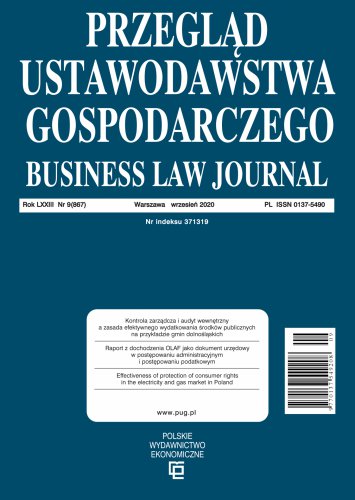Journal of Business Law 9/2020
ISBN: 0137-5490
Pages: 60
Publication date: 2020
Place publication: Warszawa
Binding: paperback
Format: A4
Publication date: 2020
Place publication: Warszawa
Binding: paperback
Format: A4
DOI: 10.33226/0137-5490.2020.9.1
JEL: H83, M19
DOI: 10.33226/0137490.2020.9.2
JEL: K4
Effectiveness of protection of consumer rights in the electricity and gas market in Poland, s. 18-25
DOI: 10.33226/0137-5490.2020.9.3
JEL: K230, K380
DOI: 10.33226/0137-5490.2020.9.4
DOI: 10.33226/0137-5490.2020.9.5
JEL: K4
DOI: 10.33226/0137-5490.2020.9.6
JEL: K21, K24
DOI: 10.33226/0137-5490.2020.9.7
JEL: K22
| Odbiór osobisty | 0 € |
| Kurier Inpost | 4 € |
| Kurier FedEX | 4 € |
| Inpost Paczkomaty | 4 € |
| Free delivery in Reader's Club | from 47 € |

